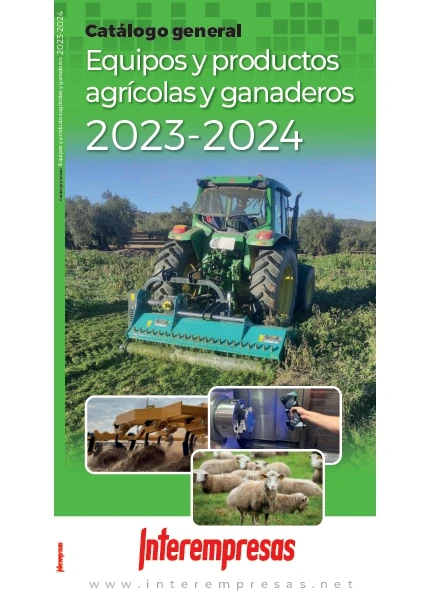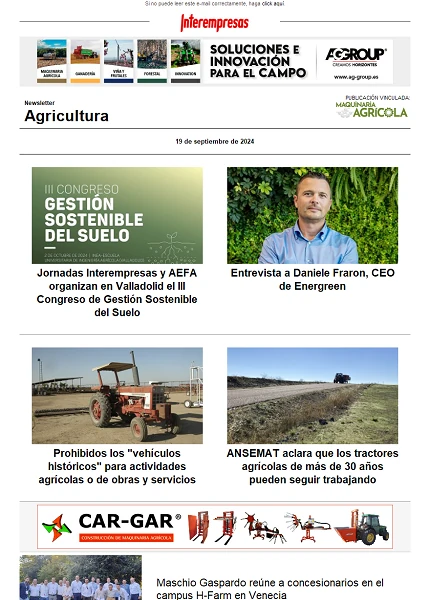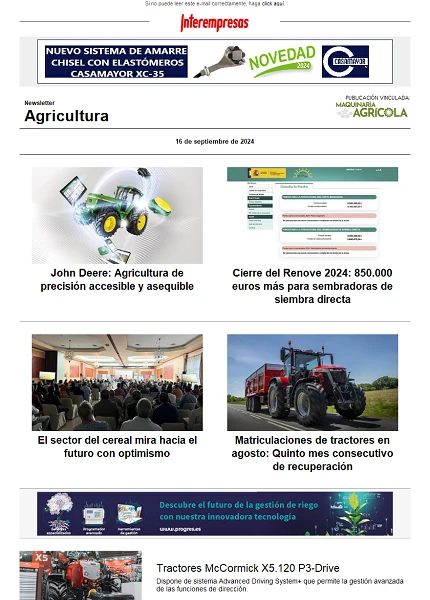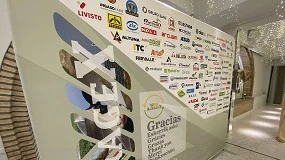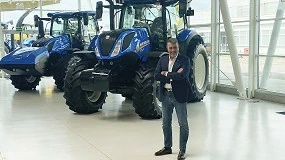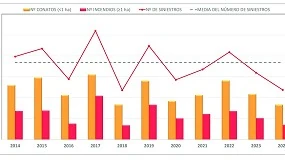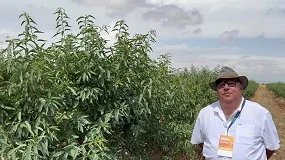La implantación de regadíos sostenibles contribuirá a potenciar la actividad agraria como sumidero de CO2
2 de julio de 2009
Una de las conclusiones más destacables del congreso señala específicamente que “la implantación de regadíos sostenibles va a contribuir a potenciar la actividad agraria como sumidero de CO2, para reducir la erosión y la desertificación y, como consecuencia, minimizar el efecto negativo del cambio climático”.
Riego, salinidad, drenaje y efectos ambientales
De los grupos de trabajo sobre agua de riego, salinidad, drenaje y efectos ambientales, se sacaron las siguientes conclusiones:
1.- La importancia de mejorar la gestión del agua y las técnicas de fertilización para elevar la eficacia del aprovechamiento y la calidad de las aguas de retorno. En cuanto al uso de fertilizantes se debe atender especialmente a los niveles de nitrato y fósforo, como posibles contaminantes, siendo de utilidad el empleo de modelos hidrosalinos, como el Cirfle, para el control de la contaminación salina.
2.- En climas semiáridos las aguas residuales depuradas representan un incremento de los recursos hídricos, pero deben ser manejadas adecuadamente, no solo en su depuración y desinfección, sino también en su tratamiento, para evitar posibles deterioros de las instalaciones y equipos de riego y, muy especialmente, de los cabezales.
3.- La utilización de redes neuronales puede ser una herramienta útil para el cálculo de parámetros climatológicos, de gran importancia en la agricultura, tanto para prevenir enfermedades y estado de los estomas -caso de la humedad relativa-, como para el estudio del clima en áreas en donde no se dispone de estaciones agroclimáticas y deben utilizarse datos interpolados de estaciones próximas.
4.- El cambio climático afecta directamente al riego, pudiendo repercutir en diferentes aspectos: puede alterar las series históricas para el cálculo de las demandas de agua o por su incidencia en la ETP, y en la emisión y rescate de CO2. La implantación de regadíos sostenibles contribuirá a potenciar la actividad agraria como sumidero de CO2, a reducir la erosión y la desertificación y, como consecuencia, a reducir los efectos negativos de tal cambio climático.
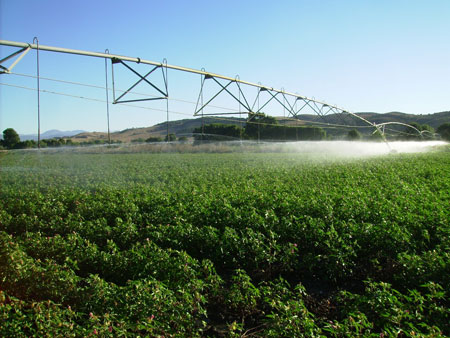
Ingeniería del riego
En los 29 trabajos presentados en el grupo de ingeniería del riego se resaltan aspectos relacionados con el diseño, construcción, explotación y mantenimiento de sistemas de riego, así como los relacionados con el ahorro de agua y energía. De ellos pueden extraerse las siguientes conclusiones:
1.- Debe prestarse mayor atención y dedicación a los aspectos relacionados con el diseño, construcción, explotación y mantenimiento de balsas de almacenamiento de agua para riego. En este campo se deben investigar los problemas de roturas de estas infraestructuras, ya que la metodología actualmente utilizada no está orientada a balsas de materiales sueltos, impermeabilizadas con geomembranas, que son las que, en su mayoría, se utilizan para riego.
2.- Se ha demostrado que el cubrimiento de las balsas de almacenamiento de agua con mallas de sombreo, tanto apoyadas en estructuras reticulares ancladas perimetralmente, como soportadas por tuberías flotantes, reduce la evaporación en más del 85%, mejora la calidad del agua de riego, rebaja el consumo de energía utilizada en los procesos posteriores de filtrado del agua, y permite la instalación de mantas flexibles fotovoltaicas para la producción de energía eléctrica.
3.- Se ha puesto de manifiesto que, en las comunidades de regantes, existe un margen de ahorro energético potencial del orden del 20% de su consumo actual, y un ahorro económico de hasta el 30% del gasto energético actual, ahorros que se pueden alcanzar realizando mejoras en el diseño y manejo de las instalaciones, en los equipos de bombeo y optimizando las tarifas eléctricas.
4.- Para la consecución de estos ahorros energéticos en las comunidades de regantes, una herramienta que por su utilidad podría ser recomendable es el protocolo de auditorías energéticas, publicado por el Idae. No obstante se ha puesto de manifiesto la necesidad de actualizar la metodología de cálculo de la eficiencia energética, así como los valores que se establecen en dicho protocolo para la clasificación energética de las comunidades.
Optimizar la gestión
Además, entre las conclusiones finales destaca la necesidad de una buena relación entre las comunidades de regantes y sus comuneros para optimizar la gestión de un recurso escaso y valioso como es el agua. Como elementos de apoyo al inventario y caracterización de los regadíos se sigue apostando por los métodos de teledetección y sistemas de información geográfica, fomentándose el uso de medios informáticos entre los regantes (páginas web, etc), tanto como instrumento de difusión de conocimientos, transferencia de tecnologías y datos, como de interlocución entre los usuarios y sus instituciones.
Las comunicaciones presentadas durante el congreso han puesto de manifiesto el interés creciente por el cumplimiento de los objetivos de la Directiva Marco del Agua. Para el éxito y sostenimiento de los nuevos regadíos se considera crucial la participación de los usuarios en la toma de decisiones, en la fase de planificación, de manera que tales transformaciones se realicen atendiendo a las ideas y sugerencias que son producto de la experiencia de los agricultores regantes.



